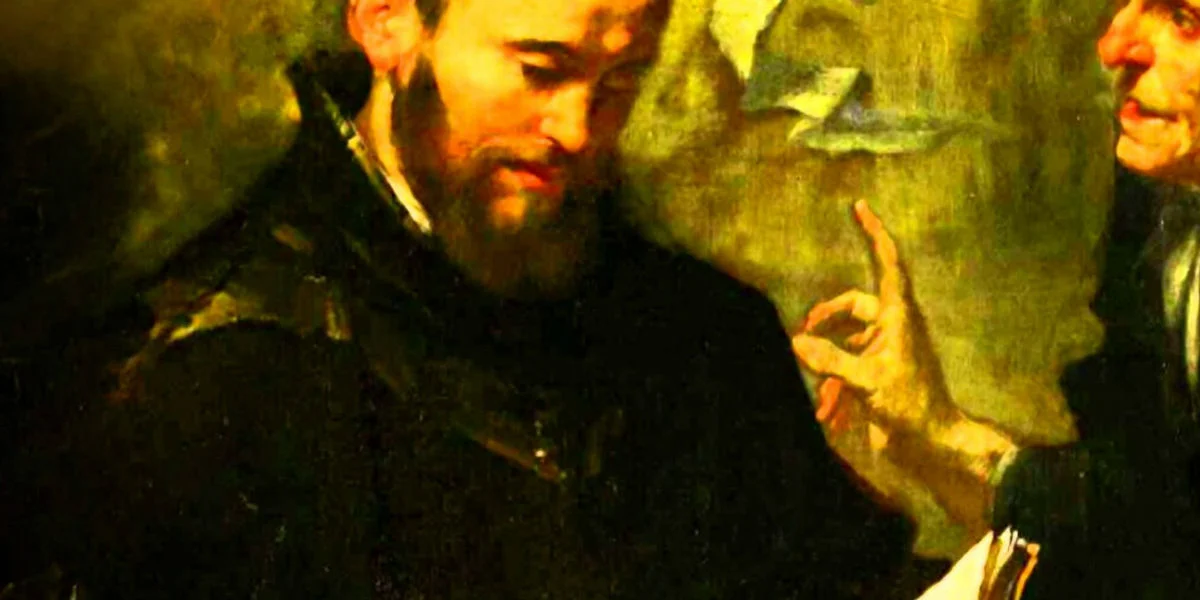Regina Caeli – Queen of Heaven, Rejoice!
The Regina Caeli, Latin for “Queen of Heaven,” is a hymn and prayer ...

“Late have I loved you,” read on the Feast of St. Augustine, August 28, laments a man who did not finally yield to faith and baptism till his thirties, whose enthusiasm for the created things of this world held him back from their Creator. But now, having breathed the fragrance of God’s truth and beauty, he pants for God and burns for the peace that only the Father of our Lord Jesus Christ can provide.
To LISTEN to this post read by Dr. Italy, click on the play arrow on the left, directly below this paragraph.
Where did I find you in order to make your acquaintance in the first place? You could not have been in my memory before I learned to know you. Where then could I have found you in order to learn of you, if not in yourself, far above me? “Place” has here no meaning: further away from you or toward you we may travel, but place there is none. O Truth, you hold sovereign sway over all who turn to you for counsel, and to all of them you respond at the same time, however diverse their pleas.
Clear is your response, but not all hear it clearly. They all appeal to you about what they want, but do not always hear what they want to hear. Your best servant is the one who is less intent on hearing from you what accords with his own will, and more on embracing with his will what he has heard from you.
Late have I loved you, Beauty so ancient and so new, late have I loved you!
Lo, you were within,
but I outside, seeking there for you,
and upon the shapely things you have made
I rushed headlong – I, misshapen.
You were with me, but I was not with you.
They held me back far from you,
those things which would have no being,
were they not in you.
You called, shouted, broke through my deafness;
you flared, blazed, banished my blindness;
you lavished your fragrance, I gasped; and now I pant for you;
I tasted you, and now I hunger and thirst;
you touched me, and I burned for your peace.
When at last I cling to you with my whole being there will be no more anguish or labor for me, and my life will be alive indeed, alive because filled with you. But now it is very different. Anyone whom you fill you also uplift; but I am not full of you, and so I am a burden to myself. Joys over which I ought to weep do battle with sorrows that should be matter for joy, and I do not know which will be victorious. But I also see griefs that are evil at war in me with joys that are good, and I do not know which will win the day. This is agony, Lord, have pity on me! It is agony! See, I do not hide my wounds; you are the physician and I am sick; you are merciful, I in need of mercy.
Is not human life on earth a time of testing? Who would choose troubles and hardships? You command us to endure them, but not to love them. No-one loves what he has to endure, even if he loves the endurance, for although he may rejoice in his power to endure, he would prefer to have nothing that demands endurance. In adverse circumstances I long for prosperity, and in times of prosperity I dread adversity. What middle ground is there, between these two, where human life might be free from trial? Woe betide worldly prosperity, and woe again, from fear of disaster and evanescent joy! But woe, woe, and woe again upon worldly adversity, from envy of better fortune, the hardship of adversity itself, and the fear that endurance may falter. Is not human life on earth a time of testing without respite?
On your exceedingly great mercy, and on that alone, rests all my hope.
“Late have I loved Thee.” In this famous excerpt from his Confessions (Lib. 10, 26. 37-29, 40: CSEL 33, 255-256), St. Augustine wrestles like Job with the problem of suffering, adversity, trial, and the sorrow that comes from God’s apparent absence in times of trouble. “Late have I loved you,” for the Feast of St. Augustine, August 28. Augustine finds his peace on doing God’s will and being his servant. This selection appears in the Roman Office of Readings for Wednesday of the eighth (8th) week in ordinary time with the accompanying biblical reading from Job 7:1-21.
For more by St. Augustine of Hippo, visit his author page.
Banner/featured image Saint Augustine and Saint Monica by Gioacchino Assereto. Public domain.
Raphael Arinze
Posted at 16:59h, 29 JuneWe need this post in every area to make a better society. This strong powerful peom of ST. AUGUSTINE will surfice.
Raphael Arinze
Posted at 14:48h, 22 JulyBeautiful in its content.
rich in wisdom.
Joseph Brian A. Servando
Posted at 06:49h, 04 FebruaryRich and deep. Utterly substantial for my longing soul. This is the kind of blessing that the world needs.